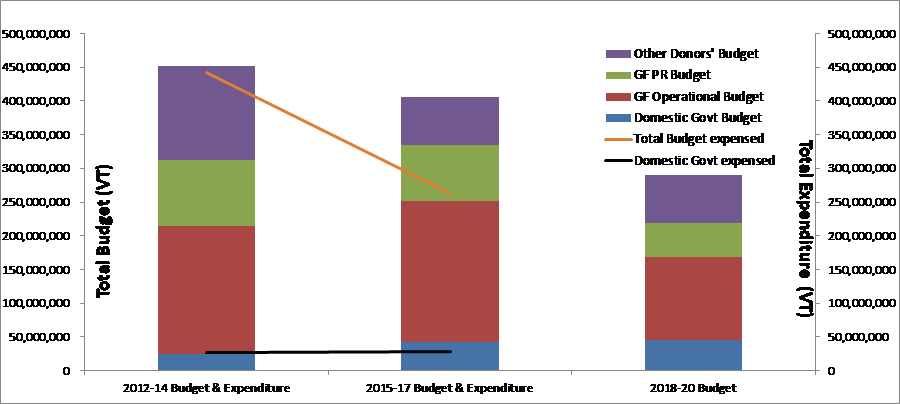Oral Presentation First Malaria World Congress 2018
Malaria elimination crossroads in Vanuatu: holding the line as the health sector evolves and vertical funding diminishes (#70)
Introduction: From 2008 onwards, the Vanuatu government with support from international partners and donors has implemented an ambitious malaria control and elimination program, which has also aimed to achieve broader health benefits through integration and health systems strengthening.
Program implementation: Intensified malaria control has been implemented nationally, while malaria elimination has been pursued progressively starting in Tafea province. Long-lasting insecticide treated nets have been distributed and maintained at high coverage countrywide. High-quality indoor residual spraying has been implemented in malaria elimination areas, using innovative geospatial mapping tools. Access to rapid diagnostic testing and artemisinin-based combination treatment has been ensured in all health facilities, supported by integrated trainings and supervisory visits. Malaria cases have been tracked through improved routine surveillance systems, supplemented by active case detection and case investigation in elimination areas. Community engagement and health promotion has involved local leaders and community groups, mass media and school campaigns. Program management, quality assurance and M&E has been improved, as well as general health information systems, drug supply management, etc.
Program impact: Results have been remarkable: In 2017, malaria elimination was achieved in Tafea province, with no locally acquired cases detected since 2014; the national annual parasite incidence (API) has been reduced to 3.6 cases per 1,000 people; no malaria deaths have been reported since 2012.
Discussion: Vanuatu aims by 2020 to reduce national API below 1 per 1,000 people; maintain zero malaria deaths; prevent malaria reintroduction in Tafea; and achieve zero transmission in Torba and Shefa provinces. By 2028, Vanuatu aims to be malaria free. However, external funding and expenditures in the malaria program is declining (see figure). Ongoing attention is needed to ensure continued funding and efficient expenditure as part of more integrated service delivery for further control and elimination of malaria to be achieved sustainably.
